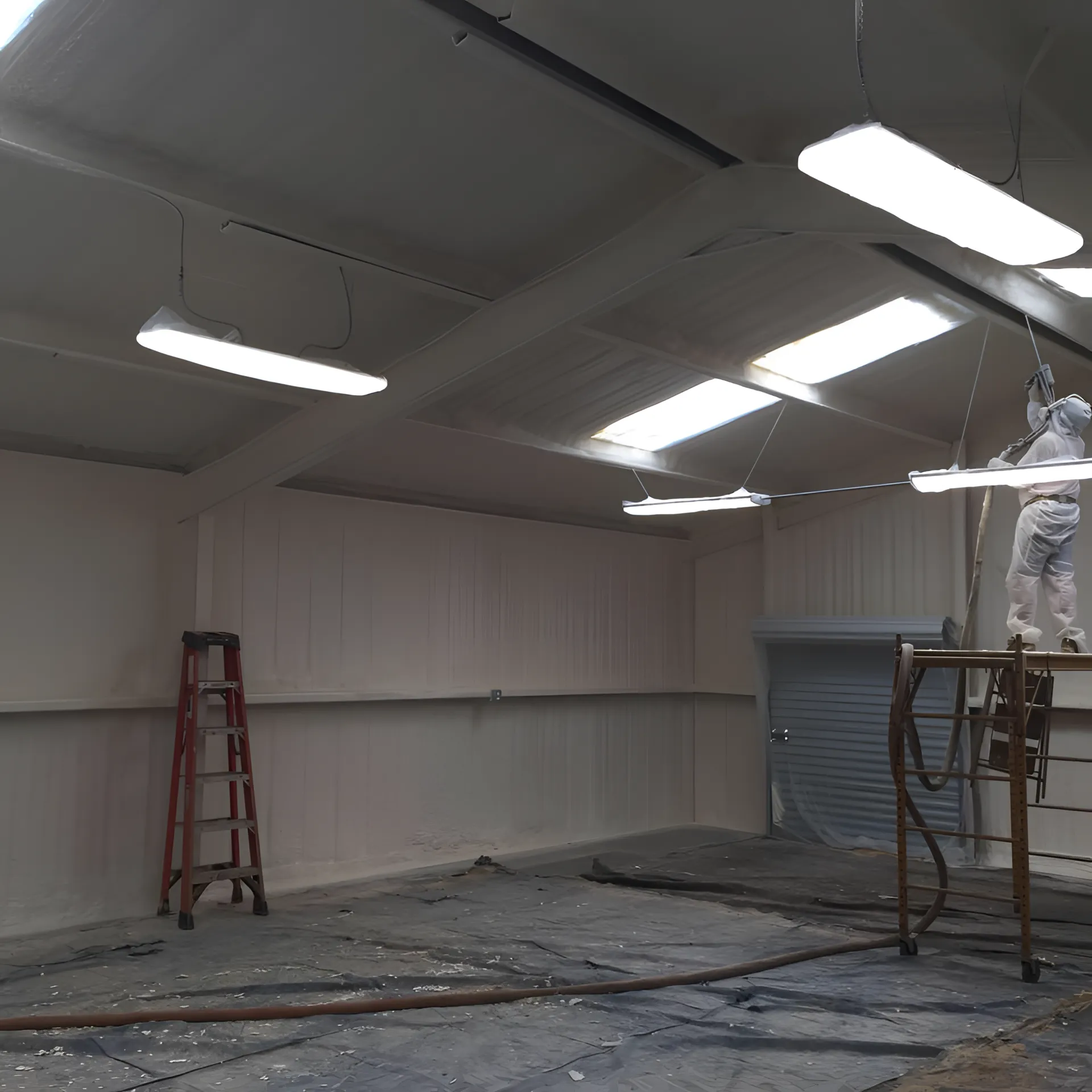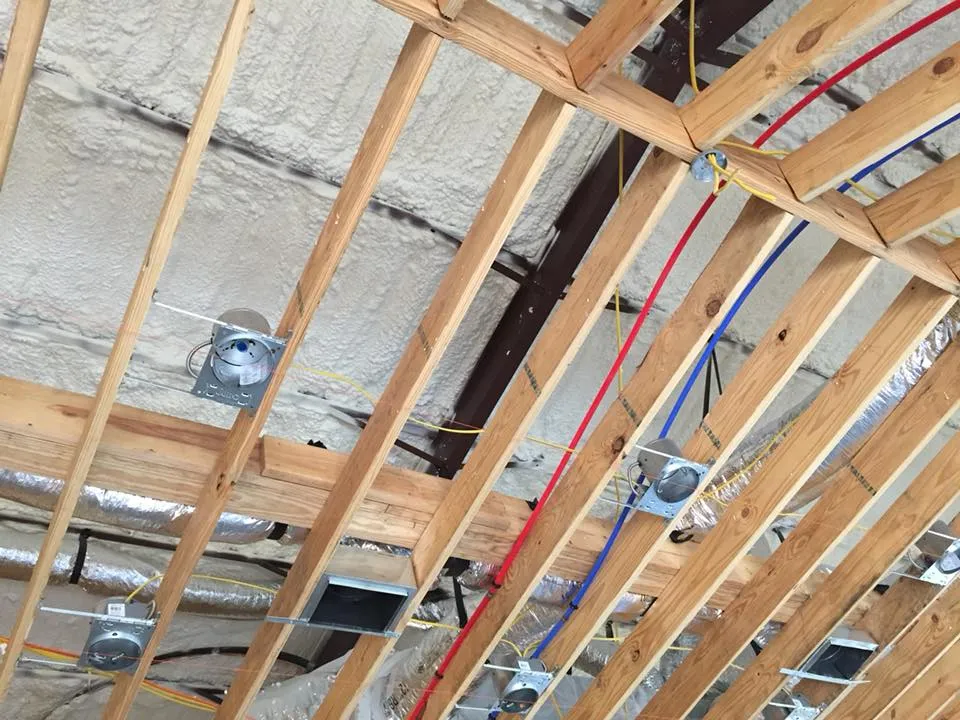
Spray foam insulation delivers significant value for Tyler homeowners facing the region’s hot, humid summers and mild winters. The investment typically pays for itself through reduced energy bills within 5-7 years, while providing superior air sealing that traditional insulation cannot match. Tyler’s climate, with average summer temperatures reaching 95°F and humidity levels often exceeding 70%, creates ideal conditions where spray foam’s moisture resistance and thermal barrier properties shine.
The East Texas region presents unique challenges that make spray foam particularly worthwhile. High humidity can compromise traditional insulation effectiveness, while temperature swings between seasons demand consistent thermal performance. Spray foam addresses these specific regional conditions while delivering long-term energy savings that traditional materials struggle to achieve in Tyler’s climate.
Tyler’s subtropical climate creates specific insulation challenges that spray foam uniquely addresses. Summer heat loads strain HVAC systems when traditional insulation allows air infiltration, while humidity can degrade fiberglass materials over time. Spray foam creates an effective vapor barrier that prevents moisture infiltration while maintaining consistent R-values regardless of humidity levels.
The region’s clay soil composition often leads to foundation settling and small structural gaps that compromise traditional insulation performance. Spray foam expands to fill these gaps, creating continuous thermal barriers that adapt to minor structural movements common in East Texas construction.
| Insulation Type | R-Value per Inch | Air Sealing | Moisture Resistance | Tyler Climate Suitability |
|---|---|---|---|---|
| Closed Cell Spray Foam | 6.0-7.0 | Excellent | Superior | Optimal |
| Open Cell Spray Foam | 3.5-4.0 | Excellent | Good | Very Good |
| Fiberglass Batt | 3.1-3.4 | Poor | Limited | Fair |
| Blown-in Cellulose | 3.2-3.8 | Fair | Moderate | Good |
| Property | Closed Cell | Open Cell | Regional Impact |
|---|---|---|---|
| Density (lb/ft³) | 1.7-2.0 | 0.4-0.5 | Higher density resists humidity better |
| Vapor Permeability | 0.8-1.0 perm | 15+ perms | Critical for Tyler’s moisture management |
| Structural Strength | 25-50 psi | 1-2 psi | Important for storm resistance |
| Application Temperature | 65-85°F | 65-85°F | Ideal for most Tyler weather |
Bonus Tip: Schedule spray foam installation during Tyler’s mild fall months (October-November) when temperatures and humidity levels create optimal curing conditions for maximum performance.

Open-cell Insulation works effectively in Tyler’s climate for interior applications where vapor control isn’t critical. The material’s breathability allows controlled moisture movement while providing excellent sound dampening for homes near busy Tyler streets or the airport flight path.
Closed-cell Insulation foam delivers superior performance for Tyler’s exterior walls and areas prone to moisture exposure. The material’s vapor barrier properties prevent humidity infiltration that commonly affects East Texas homes during summer months. Closed cell also adds structural strength, valuable during severe weather events typical in the region.
Tyler’s older home stock often features irregular framing and settling that spray foam accommodates effectively. Pre-1980s homes frequently have air leakage issues that spray foam insulation addresses comprehensively, unlike traditional insulation that leaves gaps around irregular surfaces.
Modern Tyler construction benefits from spray foam’s ability to meet current energy codes while exceeding minimum requirements. The material’s expansion properties ensure complete coverage around complex geometries common in contemporary architectural designs.
Bonus Tip: Address any existing moisture issues before spray foam installation, particularly in Tyler’s older homes where roof or plumbing leaks are common due to clay soil movement affecting foundations and settling.
Evaluate your home’s current energy performance through utility bill analysis spanning Tyler’s seasonal variations. Homes showing significant summer cooling costs or winter heating inconsistencies typically benefit most from spray foam upgrades.
Consider your long-term occupancy plans, as spray foam’s benefits compound over time through consistent energy savings and improved comfort. Properties planned for sale within 2-3 years may not realize full investment recovery, though energy efficiency upgrades often increase property values in Tyler’s competitive market.
Assess existing ventilation systems, as spray foam’s air sealing properties may require mechanical ventilation upgrades to maintain healthy indoor air quality. Tyler’s humid climate makes proper ventilation particularly important for preventing moisture accumulation in tightly sealed homes.
Review local building codes and HOA requirements, as some Tyler neighborhoods have specific guidelines for exterior work or energy efficiency improvements that could affect installation timing or methods.
Open Cell Insulation: Ideal for interior walls and attics where sound dampening and thermal performance matter more than vapor control, perfect for Tyler’s residential applications.
Closed Cell Insulation: Superior choice for exterior walls, basements, and moisture-prone areas, providing maximum protection against Tyler’s humid climate challenges.
Spray Foam Roof Insulation: Specialized application for Tyler’s challenging roof conditions, creating seamless thermal barriers that handle temperature extremes and moisture exposure.
Fiberglass Alternatives: Traditional options remain available for budget-conscious projects or specific applications where spray foam may not be necessary.
Spring and fall installations typically proceed smoothly, while summer heat may extend curing times and winter cold can affect material performance during application.
Properly installed spray foam maintains performance for decades without settling or degrading like traditional materials exposed to East Texas humidity cycles.
Most Tyler residential projects complete within 1–2 days, though larger homes or complex applications may require additional time for proper curing.
Bonus Tip: Plan installation during mild weather periods when windows can remain open for ventilation during the 24-hour curing period, particularly important in Tyler’s humid environment.
Proper spray foam installation requires specialized equipment and expertise to achieve optimal performance in Tyler’s climate conditions. Professional assessment determines the most appropriate foam type and application method for your specific property needs.
Contact D&D Insulation LLC at (903) 389-5705 or [email protected] for detailed property evaluation and installation planning. Expert consultation ensures spray foam applications meet Tyler’s specific climate challenges while maximizing energy efficiency improvements and long-term value.
Spray foam performs exceptionally well in Tyler’s humid conditions, particularly closed cell foam which creates effective vapor barriers preventing moisture infiltration that commonly affects traditional insulation materials in East Texas.
Most residential installations complete within 1-2 days, depending on square footage and complexity, with an additional 24-hour curing period before occupancy. Tyler’s climate rarely interferes with installation scheduling except during extreme weather events.
Spray foam’s superior air sealing often allows HVAC downsizing during replacement, though existing systems typically operate more efficiently with reduced heating and cooling loads after proper spray foam installation.
Properly installed spray foam requires virtually no maintenance and maintains performance for decades without settling or degrading like traditional materials exposed to humidity cycles common in East Texas.
Closed cell spray foam adds structural strength to buildings while maintaining insulation properties during storms, unlike traditional materials that may shift or become damaged during severe weather typical in the Tyler region.